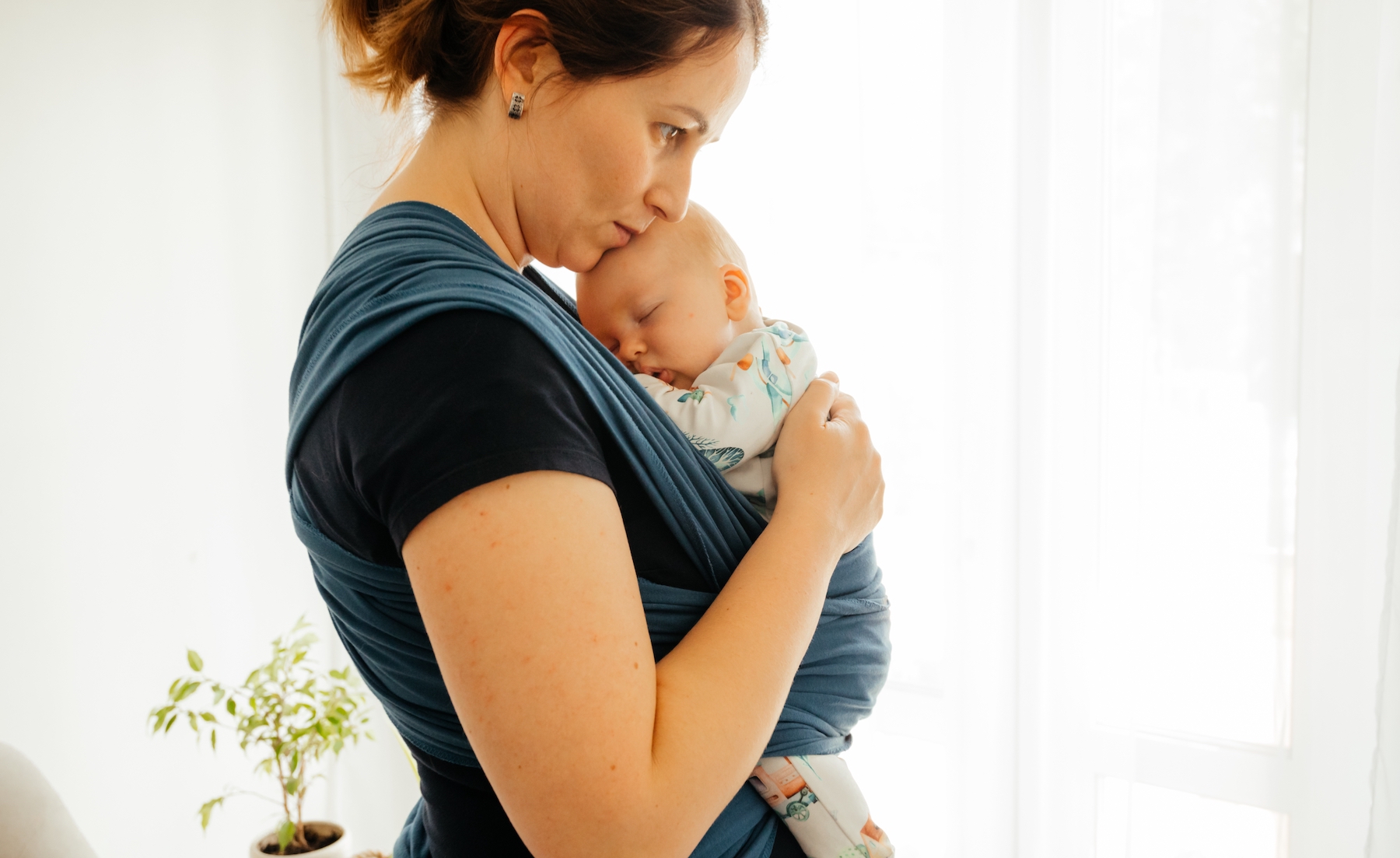Medical Issues in Adopted Children: How Can Adoption Agencies Best Support Parents Before, During, and After Adoption?
Adoption Advocate No. 142
Introduction
Now more than ever, adoption agency personnel are being asked to help parents understand pediatric medical and mental health complexities. Whether children are adopted internationally, adopted domestically as newborns, or adopted from foster care, all are at increased risk of having short- and long-term conditions. Interpreting preadoption medical referral information is often overwhelming, as the information is conflicting or confusing. Additional knowledge is often required during the adoption process. And once a child is placed with a family, a new story often begins to unfold. Parents reach out to agencies as they search for answers to help explain their child’s medical and mental health challenges. This article provides guidance for adoption professionals and adoptive parents to distinguish between what is within the scope of agency personnel, and when an adoption medicine physician should be consulted.
What Is an Adoption Medicine Physician?
There are now a number of physicians around the country who have been intimately involved in evaluating and caring for children adopted domestically, internationally, and from foster care.1 The earliest adoption medicine clinics were established over 30 years ago. Most physicians who practice “adoption medicine” are board-certified pediatricians. Some are general pediatricians while others are pediatric subspecialists (e.g. infectious disease doctors, developmental-behavioral doctors), and all have a special interest in children who are adopted. Some focus more on children who are internationally adopted, and others specialize in children adopted from foster care. Adoption medicine physicians provide a range of services, including pre-adoption consultation, “during adoption” support, and post-adoption evaluation through ongoing pediatric primary care or subspecialty pediatric care. Some provide all of these services, while others provide select services. Some provide their services for free or little cost while others charge a larger, one-time fee or use a “retainer” model (meaning that parents can access them over a pre-determined amount of time). Most adoption medicine physicians work with families remotely. Some will meet families face-to-face if they live in the same community. Many physicians practice within a large pediatric health system while others work in a community practice. Regardless of the practice type or location, parents will want to make sure that their consulting physician has access to medical subspecialists, should the need arise for particular expertise. There are no certification requirements for a physician to practice adoption medicine. (For the remainder of this article, we will refer to these doctors as “adoption medicine physicians.”)
Just as prospective adoptive parents have carefully selected their adoption agency, they will want to be intentional about selecting their adoption medicine physician.2 Both adoption agency and medical professionals should be available, responsive, and reliable. And both should have a clear understanding that adoption is about finding the right family for a child in need, and not the other way around. Adoption agency personnel, along with other adoptive parents, will be able to help prospective parents think about which adoption medicine physician is right for them.
Before the Adoption: When Should an Adoption Medicine Physician Become Involved?
In recent years, the volume of medical and developmental information has increased, which has added to the complexities of making an informed decision about whether to move forward with an adoption referral. This is true for domestic newborn adoptions, adoptions from foster care, and intercountry adoptions. For over a decade, the principle sending country of children with medical complexities has been China, where over 98% of institutionalized children have a medical need.3 Many of the children from Eastern European countries also have significant medical needs.
This has resulted in increased needs for medical support. Some agencies require prospective adoptive parents to work directly with an adoption medicine physician, while others only strongly encourage parents to consult an adoption medicine physician.
Parents can choose to consult an adoption medicine physician even before a specific child is identified. For intercountry adoptions, many agencies ask families to complete a “child request form” or a “medical conditions checklist” indicating which type of medical conditions they are willing to consider. Often, parents are further asked to indicate whether they will accept conditions that are “minor,” “moderate,” or “major.” Only qualified adoption medicine physicians should be assisting parents with these decisions. While non-medical professionals—and even most non-adoption medical professionals—may have some anecdotal experience with certain medical conditions or diseases that families adopting internationally may face, they do not have the experience or expertise to provide appropriate medical information and guidance to families. Even adoption medicine physicians find it challenging to interpret what “minor,” “moderate,” or “major” means, as those designations can often be assigned in a file by an unknown individual with unknown training or credentials, and such designations are also subject to each family’s perspective on what constitutes “minor,” “moderate,” or “major” to them.
Prospective adoptive parents Jill and Mason just received a referral for a two-year-old boy from China. The child has been diagnosed with a colon malformation. He’s also been diagnosed with global developmental delay. He had corrective surgery within the first 24 hours of his life and was placed in orphanage care. Jill and Mason had selected “correctable medical condition” and “language delay” on the medical conditions check list. They never thought they’d get a referral with more than one diagnosis.
After parents receive a referral, adoption medicine physicians can assist with interpretation of the medical records, including family medical history (if known), birth history, and early childhood medical and developmental history. While many adoption agency personnel have extensive experience reading medical referrals, a qualified adoption medicine physician is the best professional to interpret the medical information. The adoption agency personnel can play a supportive role by requesting as much documentation as possible about the child’s medical, socio-biographical, and other case history information.
Jill and Mason will require a great deal of ongoing support from both their agency and an adoption medicine physician. The adoption agency will instill in families that there is always a leap of faith in accepting a referral since there will always be unknown information when the prospective adoptive parents are making their decision. The agency personnel should encourage families to become familiar with the medical community and other resources and information they may need down the road, including medical and dental insurance, and understanding what’s covered and what’s not covered. A child may require certain types of therapies (e.g. speech therapy) or unexpected types of medical equipment. Parents may have to take extensive time off from work to be with the child during certain treatments or therapies, or unexpected, frequent visits to the physician.
The challenge here is that the need for these resources is sometimes completely unknown. The adoption medicine physician will review and explain not only the general information found on the medical referral but any hospitalization information, surgical summaries, procedures, and laboratory information. There may be general information about the global developmental delay, yet there is often little detail about the nature or extent of the delay. The adoption medicine physician can help the family think about what additional medical information may be helpful in learning more about this child. The physician can also discuss the short- and long-term implications of having a colon malformation that required surgery, as well as what life may look like for a child with a global developmental delay.
During the Adoption: When Should an Adoption Medicine Physician Become Involved?
Some adoption medicine physicians remain involved with prospective adoptive parents throughout the pre-adoption process and during the adoption. For intercountry adoptions, this means that the physician may offer to be available by phone, email, or text while the prospective adoptive parents are overseas, so when medical problems arise, they can reach out to the physician for medical advice and support. Adoption agency personnel can assist the physician in providing support as well as logistical and managerial needs, but they should not be providing medical guidance.
For a domestic newborn adoption, the adoption medicine physician may be able to provide slightly different services.
Consider Baby Layla who was born to a mom who had no prenatal care until the last trimester. An adoption plan was made and the prospective adoptive parents waited for the call 850 miles away from where Layla’s birth mother lived. Layla was born three weeks early, and the prospective adoptive parents traveled to visit her in the special care nursery. After hospital discharge, Layla and her new parents needed to stay in the birth state for one month to complete the adoption.
In domestic newborn adoptions, the adoption medicine physician can assist in several ways. In Layla’s case, the physician could review the birth mother’s medical records, if available, as well as the delivery room records and her hospital medical record. The physician may also be able to speak with hospital personnel about any particular medical risks or considerations, and relay those to the prospective adoptive parents. Since Layla needed to remain in the hospital for a month, the adoption medicine physician could possibly have found a local pediatrician to perform the required hospital follow-up and any subsequent medical care before the family returned home. An adoption medicine physician may share medical resources with a local pediatrician that would enable him or her to provide appropriate care. Adoption agency personnel can provide tremendous social support and ensure that the necessary administrative work is completed, but only the adoption medicine physician would provide the advice and guidance for Layla’s medical needs.
When Layla returned home, the adoption medicine physician would perform a comprehensive evaluation, similar to the comprehensive evaluation recommended for any newly adopted child.4 For children adopted internationally or from foster care, this first visit is typically quite extensive. Adoption agency personnel can encourage prospective adoptive parents to locate a medical provider in their area who can perform this type of exam.5
After Adoption: When Should an Adoption Medicine Physician Become Involved?
U.S. adoptions out of foster care have increased over the past 20 years. Seventy percent of children placed in foster care are removed from their homes because of abuse and neglect, and thus most have suffered early childhood trauma, adversity, and toxic stress.6 In addition to poor mental health outcomes, children adopted from foster care are quite likely to have at least one medical condition. Prospective adoptive parents’ training typically covers most of the medical and mental health challenges of children adopted from foster care,7 yet no matter how much pre-adoption preparation a family receives, there will always be surprises after the adoption.
Ethan is a 10-year-old who was adopted from foster care two years ago. After an initial rocky adjustment from his sixth and last foster home, Ethan and his new adoptive parents seemed to settle into a structured, happy home. Just recently, Ethan has begun having frequent outbursts and “temper tantrums” at home. His behavior in school has declined as well. He is struggling academically for the very first time. His parents are concerned that they have “spoiled” him, and wonder if they should, perhaps, resort to stronger discipline.
Most agencies offer a variety of post-adoption services, and parents will often first reach out to their agency contacts. These agency personnel are the professionals that families feel attached to, and can trust, as they have helped them create their families. While agencies may be able to provide social service or mental health resources, for a child such as Ethan a referral to an adoption medicine physician provider is critical.
The medical provider will start with a complete history, which may include talking with Ethan’s teachers, and a physical examination. Then the medical provider will create a differential diagnosis—or a laundry list of possibilities, some common and others not so common. The medical provider will discuss the differential with the family, and together they will decide what steps to take next. Typically, the medical provider will start with addressing common conditions that need to be ruled out before moving on to less common conditions or conditions which require further inquiry or work-up. The process of working through this decision tree—which includes thinking about medical diagnoses as well as developmental and mental health conditions—is what a medical provider is trained to do.
Ethan’s challenge could be something as simple as a change in his hearing or vision, or seasonal allergies, or headaches. Perhaps he has undiagnosed sleep apnea and his chronic exhaustion is affecting his behavior. Maybe he is struggling for the first time with an undiagnosed learning disability or executive function challenge. He could be experiencing bullying at school and now suffers from anxiety or depression. The medical provider’s job is to think through all these possibilities, and others, and then provide the appropriate treatments and/or referrals. The child’s school may need to become involved, and the medical provider can assist with a referral for an Individual Education Plan evaluation. If the adoption agency provides mental health services, and the medical provider and the family agree that mental health support could be helpful, a referral back to the adoption agency would be appropriate. If the agency does not provide mental health services they can play a critical role in referring to adoption-competent providers who do offer those services.
Conclusion
We all want to maximize the health and well-being of the children we serve. For this reason, when a child needs help, it is important to consider which types of professionals are most appropriate to become involved. When public and private child welfare agencies, medical providers, and families work together, they serve the best interests of the child.
References
- Johnson D. The Role of Pre-Placement Medical Review in Contemporary Adoptions: Setting Expectations, Assessing a Child’s Needs, and Supporting Successful Family Formation. Adoption Advocate No. 131. May 2019. https://adoptioncouncil.org//publications/2019/05/adoption-advocate-no-131
- Hamilton K. and Hanlon R. Choosing an Adoption Professional. Adoption Advocate. No. 140. Feb 2020. https://adoptioncouncil.org//publications/2020/02/adoption-advocate-no-140
- Vanderklippe N. The tragic tale of China’s orphanages: 98% of abandoned children have disabilities. The Globe and Mail. 2018; May 12. https://www.theglobeandmail.com/news/world/the-tragic-tale-of-chinas-orphanages-98-of-abandoned-children-have-disabilities/article17625887/. Accessed February 15, 2020.
- American Academy of Pediatrics, Jones F and Schulte EE; Council on Foster Care, Adoption and Kinship Care. Clinical Report: Comprehensive Health Evaluation of the Newly Adopted Child. Pediatrics. May; 143(5): e20190657; DOI: 10.1542/peds. 2019
- American Academy of Pediatrics Council on Foster Care, Adoption, and Kinship Care. https://services.aap.org/en/community/aap-councils/council-on-foster-care-adoption-and-kinship-care/. Accessed February 15, 2020.
- Moira A. Szilagyi, David S. Rosen, David Rubin, Sarah Zlotnik and the Council on Foster Care, Adoption, and Kinship Care, the Committee on Adolescence and the Council on Early Childhood. Pediatrics. October 2015, 136 (4) e1142-e1166; DOI: https://doi.org/10.1542/peds.2015-2656.
- American Academy of Pediatrics, Jones F; Schulte EE; Committee on Early Childhood and Section on Adoption and Foster Care. Clinical Report: The Pediatrician’s Role in Supporting Adoptive Families. Pediatrics Oct;130(4):e1040-9, 2012.




